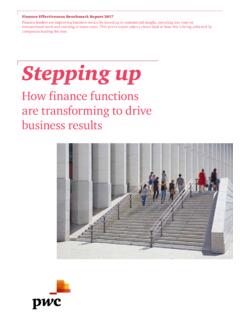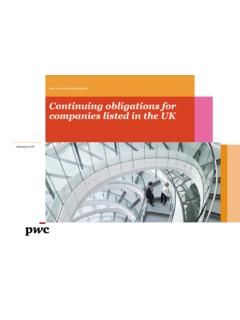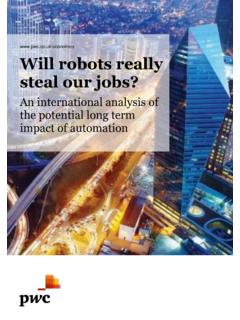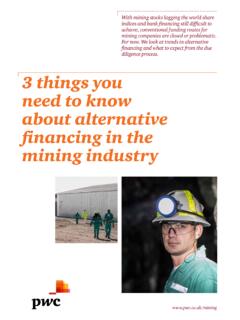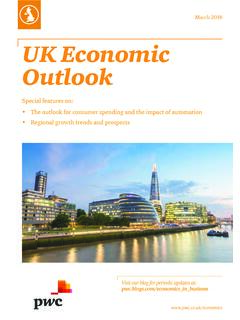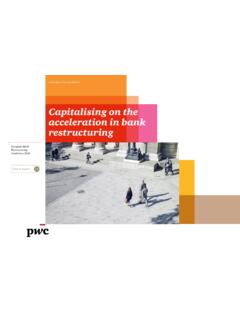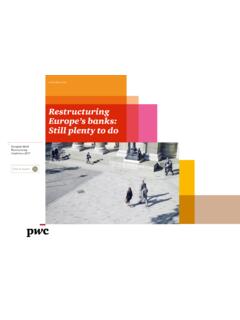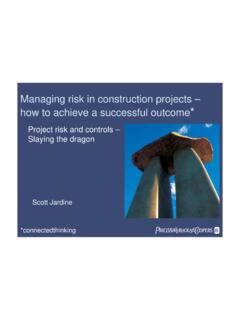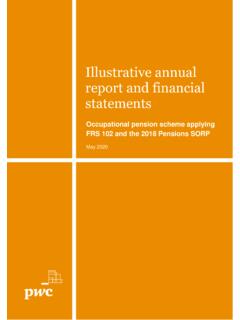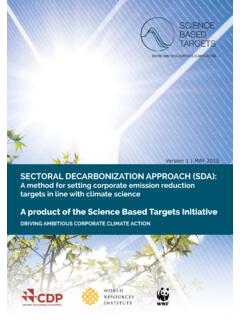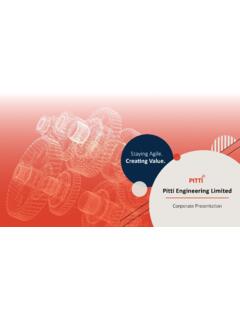Transcription of How AI can enable a sustainable future - PwC UK
1 In association withHow AI can enable a sustainable FutureForewordToday s information age is driving unbelievable advances at tremendous speed. AI will enable humans to harness vast amounts of data and make breakthrough advances in areas like healthcare, agriculture, education, and transportation. We re already seeing how AI-bolstered computing can help doctors reduce medical mistakes, farmers improve yields, teachers customize instruction, and researchers unlock solutions to protect our as we ve seen over the past 20 years, as digital advances bring us daily benefits, they also raise a host of complex questions and broad concerns about how technology will affect society.
2 We have seen this as the internet has come of age and become an essential part of our work and private lives. And this seems certain to continue as AI evolves and the world focuses on the role it will play in society. As we look to the future , it s important that we maintain an open and questioning mind while we seek to take advantage of the opportunities and address the challenges that this new technology, and others like it, these technology advances will affect the planet is among those questions, and one we have a limited amount of time to answer given the urgency of challenges such as climate change and biodiversity loss. If you look at the past 200 years, a series of industrial revolutions have radically improved the standards of living for human beings.
3 But each past industrial revolution has borrowed from the future to pay for the present by achieving economic growth through the degradation of our planet s health. Today s technological revolution must break this pattern, and for the first time deliver sustainable economic and PwC have a shared belief that, with a great deal of urgency, we must address the diminishing health of our environment. We also share a belief that new technologies like AI can be a game-changer in this space. But to create the kind of global action needed, it needs to be more than a belief it needs to be backed by data, by solutions, and by new is why, together, we undertook this research.
4 Applying our expertise in AI, data science, economics, and sustainability, we examined four sectors of the economy that are primed to be, or in many cases are already being, disrupted by AI to better understand the potential economic and environmental benefits. These sectors are Agriculture, Energy, Transport and us, some key conclusions , there is enormous potential for AI to be an important tool in the effort to decouple economic growth from rising carbon emissions. In other words, there is a path towards a prosperous, just, and more sustainable future with advanced , this outcome relies on bringing together several factors. The solutions we explore are not AI acting on its own; in most cases multiple complementary technologies come together, including robotics, the internet of things, distributed energy resources, electric vehicles, and more.
5 AI also requires large amounts of compute power, which translate to energy consumption. Without new incentives that accelerate a market change towards clean energy from renewables to electric vehicles the efficiency gains from AI won t deliver their full emissions reduction potential for the world. On the flip side, our own projections of GDP and environmental gains could be 2 How AI can enable a sustainable Futureat the low end of what plays out in reality. The signals are that a more rapid and global low-carbon transition lies ahead than that reflected by our Business As Usual scenario, driven by the increasing cost-competitiveness of low carbon alternatives and continued ratcheting of environmental , there are important issues of justice to consider, to ensure that benefits are inclusive.
6 The largest gains we see map to the countries that are already at the forefront of AI adoption, and are not evenly experienced today. Without incentives and policy change to ensure all regions are ready to capture these benefits, these economic and climate inequalities will be exacerbated. Just looking at jobs, the good news story of more high-skilled jobs also carries a reality of jobs displacement, and a pressing need for upskilling and reskilling to avoid leaving people all means we need to think beyond the technology itself to address the wider implications on society and our environment. From the need for strong ethical frameworks, to the evolution of laws, the importance of education and training for new skills, and even labor market reforms these must all come together if we re going to make the most of this new , we need to address these issues together with a sense of shared responsibility.
7 In part this is because AI technology won t be created by the tech sector alone. Creating a better future requires that people in government, academia, business, civil society, and other interested stakeholders come together to help shape this future . And increasingly we need to do this not just in a single community or country, but on a global basis. Each of us has a responsibility to participate and an important role to report is just the first step in building a case for deeper exploration of how AI can create a more sustainable future . There are many additional sectors to examine and areas to explore, and we hope this research inspires others to conduct similar work.
8 We have greater ambitions than driving academic research, however. Research should be a means to an end, and this case, that end should be global progress on climate change and nature. We know enough today from science to understand that there is a limited amount of time to make the kind of changes needed to allow the seven billion people on this planet to live, work, grow, and hope the pages that follow will help spark increased efforts to help make the fourth industrial revolution become the first one to deliver a better future for both society and our JoppaChief Environmental Officer, MicrosoftCeline HerweijerGlobal Innovation & Sustainability Leader, Partner, PwC UK3 Executive Summary4 How AI can enable a sustainable FutureContentsExecutive Summary1.
9 The case for AI for the environment 122. Realizing AI for the environment 163. Unlocking AI for the environment 364. Appendix 425 How AI can enable a sustainable FutureA time of rapid changeThe coming few decades look set to be a time of unprecedented change for humans. On one hand, our ingenuity has unleashed an information and intelligence age where the ascendency of emerging technologies, including AI is set to reshape industries, scientific discovery, human engagement and endeavor, and even economic power. On the other hand, the extraordinary advances of previous generations, which in the last century delivered exponential economic growth and huge strides in human welfare, have also left us with a planet that scientists warn is under unprecedented environmental strain.
10 This has led to the so-called Anthropocene age where human activity is the dominant influence on our environment and our natural systems are changing at unprecedented rates1, from climate change to biodiversity loss, ocean warming and acidification, deforestation, and water and air as we sit at the intersection of the Artificial Intelligence (AI) age and the Anthropocene age, not enough has been done yet to bring these two worlds together. And let s not forget that it s society today that will not only feel the impact of climate change first, but will also be the first to experience rapid digital transformation, automation and augmented human ingenuity.
